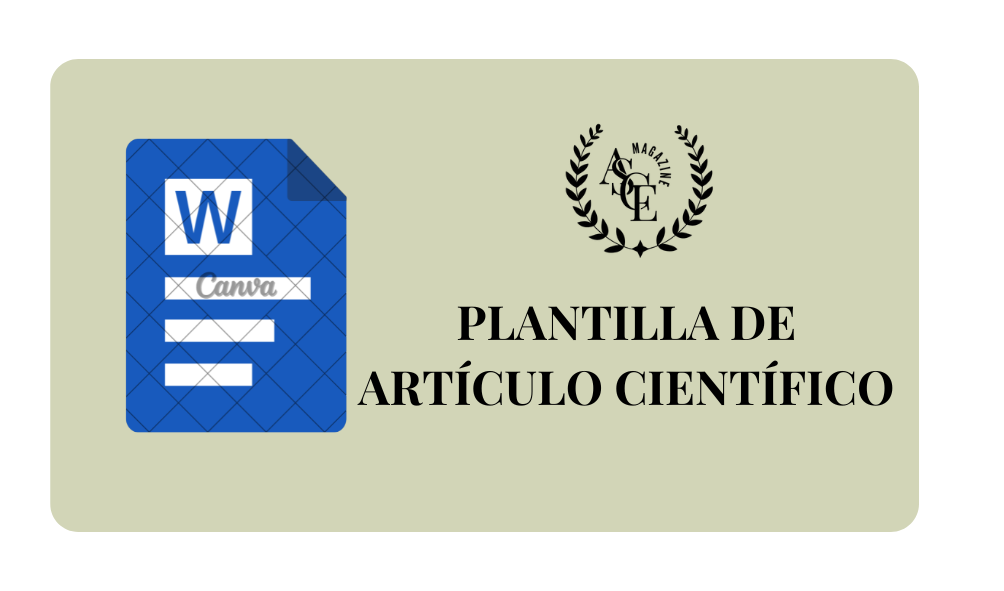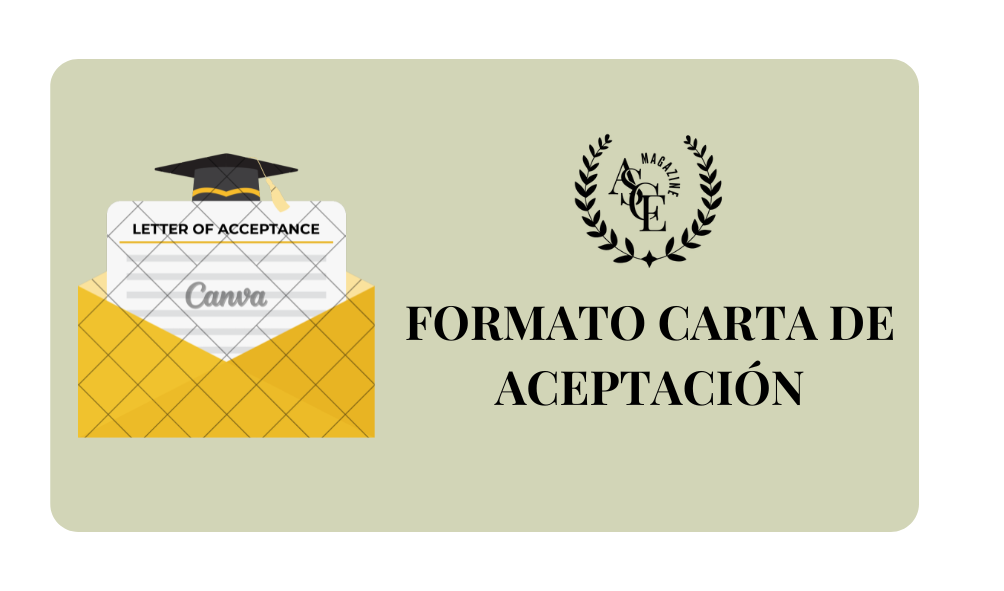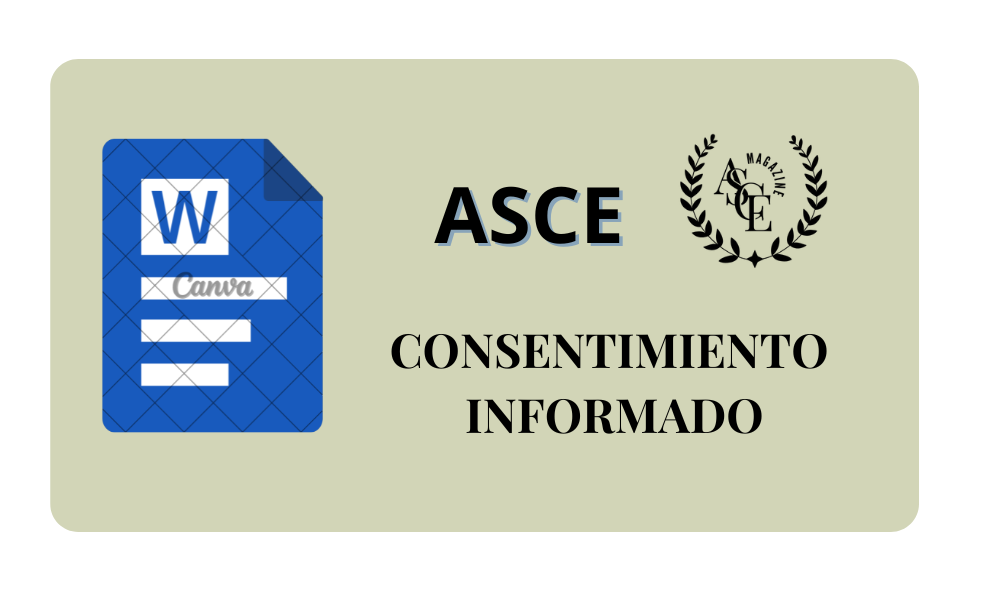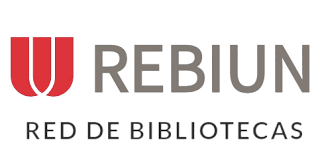Mathematical Gamification Mediated by Digital Tools: Effects on Motivation and Academic Performance in Students.
DOI:
https://doi.org/10.70577/ASCE/823.846/2025Keywords:
Critical thinking, Digital narratives, Augmented reality, Didactic innovation, History teaching, Emerging technologies, Secondary education.Abstract
This study looks at how using digital stories and augmented reality (AR) in history class affects the ability of high school pupils to think critically. People say that these tools will make people more interested, make them think more about historical sources, and help them improve their higher-order thinking skills like analysis, evaluation, and reasoning. A mixed quasi-experimental design was used in two second-year secondary school classrooms at a public school. The experimental group (n = 45) learned through interactive digital stories and augmented reality experiences, while the control group (n = 42) learned through regular lectures and guided readings. The intervention lasted for one academic semester and included five historical subject modules over the course of sixteen weeks. The technology employed included a mobile app that adds virtual surroundings to real places like museums and historical monuments, as well as narrative components that give pupils problems to solve.We employed validatedtools for evaluation, such as the PCHist standardized test of critical thinking in history, perceptual surveys, and qualitative field journals. The quantitative part of the data was looked at by independent samples t-tests, repeated measures ANOVA, and thematic coding. The data that were looked at show that the group who used the augmented reality tool (AR) had a big boost in their total PCHist scores (p < 0.01). The biggest improvements were seen in tasks that required historical reasoning and source evaluation. Interestingly, the students who went to the AR sessions the most often had the most improvements. Surveys showed that most people (87%) strongly agreed that they were more motivated and had a better understanding of how historical events happen. The field journals also showed that the students were getting better at making strong arguments and being able to compare different situations.Based on these results, the study shows that combining digital stories with AR can make history lectures more interesting by improving cognitive function and encouraging students to think critically, reflectively, and analytically about the past. This information is useful for teachers, curriculum designers, and educational innovators who want to use new technology as effective mediation tools in high school. Finally, the study implies that using AR and digital stories in a planned way could change how things are done in the classroom and help students improve their most important 21st-century skills.
Downloads
References
Alarcon Burneo , S. N., Basantes Guerra, J. P., Chaglla Lasluisa, W. F., Carvajal Coronado, D. E., Martínez Oviedo, M. Y., Vargas Saritama, M. E., & Bernal Parraga, A. P. (2024). Uso de Recursos Manipulativos para Mejorar la Comprensión de Conceptos Matemáticos Abstractos en la Educación Secundaria. Ciencia Latina Revista Científica Multidisciplinar, 8(5), 1972-1988. https://doi.org/10.37811/cl_rcm.v8i5.13669 DOI: https://doi.org/10.37811/cl_rcm.v8i5.13669
Alsawaier, R. S. (2018). The effect of gamification on motivation and engagement. International Journal of Information and Learning Technology, 35(1), 56-79. https://doi.org/10.1108/IJILT-02-2017-0009 DOI: https://doi.org/10.1108/IJILT-02-2017-0009
Alvarez Piza, R. A., Del Hierro Pérez, M. C., Vera Molina, R. M., Moran Piguave, G. D., Pareja Mancilla, S. S., Narváez Hoyos, J. J., & Bernal Parraga , A. P. (2024). Desarrollo del Pensamiento Lógico a través de la Resolución de Problemas en Matemáticas Estrategias Eficaces para la Educación Básica. Ciencia Latina Revista Científica Multidisciplinar, 8(5), 2212-2229. https://doi.org/10.37811/cl_rcm.v8i5.13686 DOI: https://doi.org/10.37811/cl_rcm.v8i5.13686
Alvarez Piza, R. A., Del Hierro Pérez, M. C., Vera Molina, R. M., Moran Piguave, G. D., Pareja Mancilla, S. S., Narváez Hoyos, J. J., & Bernal Parraga, A. P. (2024). Desarrollo del razonamiento en educación básica mediante aprendizaje basado en problemas y lecciones aprendidas de proyectos matemáticos previos. Ciencia Latina Revista Científica Multidisciplinar, 8(5), 13998-14014. https://doi.org/10.37811/cl_rcm.v8i5.14912 DOI: https://doi.org/10.37811/cl_rcm.v8i5.14912
Arequipa Molina, A. D., Cruz Roca, A. B., Nuñez Calle, J. J., Moreira Velez, K. L., Guevara Guevara, N. P., Bassantes Guerra, J. P., & Bernal Parraga, A. P. (2024). Formación Docente en Estrategias Innovadoras y su Impacto en el Aprendizaje de las Matemáticas. Ciencia Latina Revista Científica Multidisciplinar, 8(4), 9597-9619. https://doi.org/10.37811/cl_rcm.v8i4.13111 DOI: https://doi.org/10.37811/cl_rcm.v8i4.13111
Ataman, O. (2022). The effects of gamification on gifted students' mathematics anxiety and attitudes. Journal of Gifted Education and Creativity, 9(1), 33–43. https://files.eric.ed.gov/fulltext/EJ1413568.pdf
Benítez, F., & Granda, J. (2022). La gamificación en la matemática como herramienta potenciadora en el trabajo docente. Revista Social Fronteriza, 10(35), 273–290. https://www.researchgate.net/publication/363029811_La_gamificacion_en_la_matematica_como_herramienta_potenciadora_en_el_trabajo_docente
Bernal Párraga , A. P., Haro Cedeño, E. L., Reyes Amores, C. G., Arequipa Molina, A. D., Zamora Batioja, I. J., Sandoval Lloacana, M. Y., & Campoverde Duran, V. D. R. (2024). La Gamificación como Estrategia Pedagógica en la Educación Matemática. Ciencia Latina Revista Científica Multidisciplinar, 8(3), 6435-6465. https://doi.org/10.37811/cl_rcm.v8i3.11834 DOI: https://doi.org/10.37811/cl_rcm.v8i3.11834
Bernal Párraga, A. P., Alcívar Vélez, V. E., Pinargote Carreño, V. G., Pulgarín Feijoo, Y. A., & Medina Garate , C. L. (2025). Pensamiento lógico y resolución de problemas: El uso de estrategias de aprendizaje colaborativo para desarrollar habilidades de razonamiento matemático en contextos cotidianos . Arandu UTIC, 12(1), 360–378. https://doi.org/10.69639/arandu.v12i1.605. DOI: https://doi.org/10.69639/arandu.v12i1.605
Bernal, A., & Guarda, T. (2020). La gestión de la información es factor determinante para elaborar estrategias innovadoras en política educativa pública. Iberian Journal of Information Systems and Technologies, (E27), 35-48.
Buckley, P., & Doyle, E. (2016). Gamification and student motivation. Interactive Learning Environments, 24(6), 1162–1175. https://doi.org/10.1080/10494820.2014.964263 DOI: https://doi.org/10.1080/10494820.2014.964263
Carrillo, C., & Flores, M. A. (2023). Teachers’ professional development through gamification: Opportunities and challenges. Teaching and Teacher Education, 124, 104151. https://doi.org/10.1016/j.tate.2023.104151 DOI: https://doi.org/10.1016/j.tate.2023.104151
Castañeda, L., & Selwyn, N. (2022). Digital education after COVID-19: The future of gamification. Learning, Media and Technology, 47(4), 386–400. https://doi.org/10.1080/17439884.2022.2074433
Chele Delgado, M., & Cueva Cando, M. (2025). Gamificación en el aprendizaje matemático: Estrategias digitales para motivar y mejorar el desempeño. Revista Venezolana de Educación Matemática, 32(3), 75–92. https://ve.scielo.org/scielo.php?script=sci_arttext&pid=S2739-00632025000300205
Coronel, J., Cabrera, C., & Ponce, M. (2023). Educación gamificada y herramientas digitales en la enseñanza de matemáticas. Arxiv Preprint. https://arxiv.org/abs/2306.13685
Cosquillo Chida , J. L., Burneo Cosios, L. A., Cevallos Cevallos, F. R., Moposita Lasso, J. F., & Bernal Parraga, A. P. (2025). Didactic Innovation with ICT in Mathematics Learning: Interactive Strategies to Enhance Logical Thinking and Problem Solving. Revista Iberoamericana De educación, 9(1), 269–286. https://doi.org/10.31876/rie.v9i1.299 DOI: https://doi.org/10.31876/rie.v9i1.299
Deci, E. L., & Ryan, R. M. (2017). Intrinsic motivation and self-determination in human behavior. Springer. https://doi.org/10.1007/978-1-4899-2271-7 DOI: https://doi.org/10.1007/978-1-4899-2271-7
Delgado-Gómez, D., & Gutiérrez-Braojos, C. (2024). The role of self-determined motivation in academic achievement: Evidence from gamified contexts. Learning and Individual Differences, 108, 102296. https://doi.org/10.1016/j.lindif.2024.102296
Dichev, C., & Dicheva, D. (2017). Gamifying education: What is known, what is believed and what remains uncertain. International Journal of Educational Technology in Higher Education, 14(1), 1–36. https://doi.org/10.1186/s41239-017-0042-5 DOI: https://doi.org/10.1186/s41239-017-0042-5
Fernández-Robles, B., & Sánchez, E. (2023). Gamificación educativa y bienestar socioemocional. Journal of New Approaches in Educational Research, 12(2), 243–259. https://doi.org/10.7821/naer.2023.7.1098
Fierro Barrera , G. T., Aldaz Aimacaña, E. del R., Chipantiza Salán , C. M., Llerena Mosquera, N. C., Morales Villegas, N. R., Morales Armijo , P. A., & Bernal Párraga, A. P. (2024). El Refuerzo Académico en Educación Básica Superior en el Área de Matemática. Ciencia Latina Revista Científica Multidisciplinar, 8(4), 9639-9662. https://doi.org/10.37811/cl_rcm.v8i4.13115 DOI: https://doi.org/10.37811/cl_rcm.v8i4.13115
Garcia Carrillo , M. de J., Bernal Párraga, A. P., Alexis Cruz Gaibor, W., Cruz Roca, A. B., Ruiz Vasco, D. E., Montaño Ordóñez, J. A., & Illescas Zaruma, M. S. (2024). Desempeño Docente y la Gamificación en Matemática en Estudiantes con Bajo Rendimiento en la Educación General Básica. Ciencia Latina Revista Científica Multidisciplinar, 8(4), 7509-7531. https://doi.org/10.37811/cl_rcm.v8i4.12919 DOI: https://doi.org/10.37811/cl_rcm.v8i4.12919
García-Peñalvo, F. J., & Seoane-Pardo, A. M. (2022). Learning analytics in gamified environments: A systematic review. IEEE Access, 10, 51721–51734. https://doi.org/10.1109/ACCESS.2022.3169446
Gros, B., & Bernat, Á. (2022). Gamification and education: Breaking the rules or just playing? Digital Education Review, 41, 1–16. https://doi.org/10.1344/der.2022.41.1-16
Guishca Ayala , L. A., Bernal Parraga, A. P., Martínez Oviedo, M. Y., Pinargote Carreño, V. G., Alcívar Vélez, V. E., Pinargote Carreño, V. L., Pisco Mantuano, J. E., Cardenas Pila, V. N., & Guevara Albarracín , E. S. (2024). Integración De La Inteligencia Artificial En La Enseñanza De Matemáticas Un Enfoque Personalizado Para Mejorar El Aprendizaje. Ciencia Latina Revista Científica Multidisciplinar, 8(6), 818-839. https://doi.org/10.37811/cl_rcm.v8i5.14114 DOI: https://doi.org/10.37811/cl_rcm.v8i5.14114
Hamari, J., Koivisto, J., & Sarsa, H. (2019). Does gamification work? A literature review of empirical studies on gamification. Proceedings of the 47th Hawaii International Conference on System Sciences, 3025–3034. https://doi.org/10.13140/2.1.4516.3528 DOI: https://doi.org/10.1109/HICSS.2014.377
Jaramillo-Mediavilla, C., Espejo-Arenas, S., & Gómez-Sánchez, E. (2024). Estrategias digitales en el aprendizaje de las matemáticas. Revista Boliviana de Educación Matemática, 5(2), 21–37. https://www.scielo.org.bo/scielo.php?script=sci_arttext&pid=S2959-65132023000200074
Jaramillo-Mediavilla, L., Basantes-Andrade, A., Cabezas-González, M., & Casillas-Martín, S. (2024). Impact of Gamification on Motivation and Academic Performance: A Systematic Review. Education Sciences, 14(6), 639. https://doi.org/10.3390/educsci14060639 DOI: https://doi.org/10.3390/educsci14060639
Jimenez Bajaña, S. R., Crespo Peñafiel, M. F., Villamarín Barragán, J. G., Barragán Averos, M. D. L., Barragan Averos, M. B., Escobar Vite, E. A., & Bernal Párraga, A. P. (2024). Metodologías Activas en la Enseñanza de Matemáticas: Comparación en-tre Aprendizaje Basado en Problemas y Aprendizaje Basado en Proyectos. Ciencia Latina Revista Científica Multidisciplinar, 8(3), 6578-6602. https://doi.org/10.37811/cl_rcm.v8i3.11843 DOI: https://doi.org/10.37811/cl_rcm.v8i3.11843
Jutin, R., & Maat, S. M. (2024). The effect of gamification on learning strategies and engagement in STEM education. Journal of Educational Research and Practice, 14(2), 50–68. https://search.proquest.com/openview/a3177b745ed636dfa91a8e48f1e7396d/1?pq-origsite=gscholar
Jutin, R., & Maat, S. M. (2024). The effectiveness of gamification in teaching and learning mathematics: A systematic literature review. International Journal of Learning, Teaching and Educational Research, 23(1), 1–18. https://www.researchgate.net/publication/378353353_The_Effectiveness_of_Gamification_in_Teaching_and_Learning_Mathematics_A_Systematic_Literature_Review
Karamert, C., & Vardar, S. (2021). Effects of gamification on students' academic achievement and motivation: A meta-analysis study. Education and Information Technologies, 26(5), 6101–6123. https://doi.org/10.1007/s10639-021-10604-3
Karamert, C., & Vardar, S. (2021). Effects of gamification on students' academic achievement and motivation: A meta-analysis study. Education and Information Technologies, 26(5), 6101–6123. https://doi.org/10.1007/s10639-021-10604-3
Khodaei, S., & Shams, M. (2024). Gamified learning in medical education: An empirical study. Medical Journal of Islamic Republic of Iran, 38, 35. https://pmc.ncbi.nlm.nih.gov/articles/PMC10611935/
Khodaei, S., Ghanbari, R., & Shams, M. (2024). The effect of gamified feedback on learning and motivation in medical statistics. Journal of Education and Health Promotion, 13, 62. https://doi.org/10.4103/jehp.jehp_1071_22
Lampropoulos, G., & Kinshuk, K. (2024). Gamified VR-based learning environments for children with ASD. Education and Information Technologies, 29, 1123–1145. https://doi.org/10.1007/s10639-023-11658-1
Lara-Cabrera, R., Romero, S., & Llinás, J. (2023). A framework for gamified learning environments: An application in programming courses. Arxiv Preprint. https://arxiv.org/abs/2303.08939
Lopez-Cano, J., Arcentales, M., & Vélez, J. (2024). Percepción estudiantil sobre el aprendizaje gamificado. Revista UNESUM Ciencias, 5(3), 110–126. https://revistas.unesum.edu.ec/index.php/unesumciencias/article/download/851/952
Lozano, P., Marín, E., & Castro, F. (2023). Aplicación del modelo Octalysis en el diseño de software educativo gamificado. Arxiv Preprint. https://arxiv.org/abs/2306.13685
McLaren, B., Adams, D., & Mayer, R. (2017). Delayed learning benefits of game-based learning. Journal of Educational Psychology, 109(3), 353–367. https://doi.org/10.1037/edu0000146 DOI: https://doi.org/10.1037/edu0000146
Meta‑estudios Meta‑Analíticos (2023). The effectiveness of gamification in education: A meta‑analysis. British Journal of Educational Technology, 54(3), 632–649. https://bera-journals.onlinelibrary.wiley.com/doi/full/10.1111/bjet.13471
Pehlivan, M., & Arabacioglu, B. (2023). The effect of gamification on math achievement, motivation and learning strategies in flipped classrooms. International Journal of English Language & Translation Studies, 11(3), 96–108. https://journals.aiac.org.au/index.php/IJELS/article/view/7923 DOI: https://doi.org/10.7575/aiac.ijels.v.11n.4p.309
Pehlivan, M., & Arabacioglu, B. (2023). Using gamification to enhance motivation and reduce anxiety in mathematics education. Contemporary Educational Technology, 15(1), ep450. https://doi.org/10.30935/cedtech/13019
Pérez-López, D., & Rivera, D. (2023). Gamificación y emociones: Perspectivas desde la neuroeducación. Revista de Estudios y Experiencias en Educación, 22(43), 149–164. https://www.scielo.cl/scielo.php?script=sci_arttext&pid=S0718-51622023000100149
Ramírez, D., Gómez, S., & Quiroz, M. (2024). Implementación de plataformas gamificadas para el aprendizaje de matemáticas. Revista UNESUM Ciencias, 5(2), 90–105. https://revistas.unesum.edu.ec/index.php/unesumciencias/article/download/851/952
Rodrigues, L., Costa, R., & Gomes, J. (2022). The novelty effect in digital learning environments. Educational Technology Research and Development, 70(5), 2025–2043. https://doi.org/10.1007/s11423-022-10074-0
Sánchez, A., Camacho, J., & Muñoz, P. (2023). Gamificación y aprendizaje significativo en educación inicial: Un estudio en contexto urbano. Revista Colombiana de Educación, 85, 207–230. https://revistas.pedagogica.edu.co/index.php/RCE/article/view/16682
Silva, L., Almeida, L., & Ribeiro, F. (2024). Gamification in higher education: A systematic review of effects on learning outcomes and motivation. Educational Technology Research and Development, 72, 1523–1545. https://doi.org/10.1007/s11423-024-10174-2
Smiderle, R., Rigo, S. J., Marques, L. B., Coelho, J. A. P. M., & Jaques, P. A. (2020). The impact of gamification on students' learning, engagement and behavior based on their personality traits. Smart Learning Environments, 7, 1–21. https://files.eric.ed.gov/fulltext/EJ1307874.pdf DOI: https://doi.org/10.1186/s40561-019-0098-x
Torres Illescas, V., Villacrés Prieto, P., Román Cabrera, J., Bernal Párraga, A. (2024). Charting the Path of Reading Development: A Study on the Importance and Effective Strategies for Reading in Early Ages Based on Technology. In: Gervasi, O., Murgante, B., Garau, C., Taniar, D., C. Rocha, A.M.A., Faginas Lago, M.N. (eds) Computational Science and Its Applications – ICCSA 2024 Workshops. ICCSA 2024. Lecture Notes in Computer Science, vol 14820. Springer, Cham. https://doi.org/10.1007/978-3-031-65285-1_2 DOI: https://doi.org/10.1007/978-3-031-65285-1_2
Torres-Toukoumidis, Á., Romero-Rodríguez, L. M., & Pérez-Rodríguez, A. (2023). Gamification, digital competence and emotional intelligence in primary education. Computers & Education, 199, 104763. https://doi.org/10.1016/j.compedu.2023.104763 DOI: https://doi.org/10.1016/j.compedu.2023.104763
UNESCO. (2023). Código ético para la inteligencia artificial. https://unesdoc.unesco.org/ark:/48223/pf0000381137
Villagrasa, S., Fonseca, D., & Redondo, E. (2023). Gamification in education: An empirical study of its effectiveness in online learning. Education and Information Technologies, 28(1), 715–733. https://doi.org/10.1007/s10639-022-11157-x
Zamora Franco, A. F., Bernal Párraga , A. P., Garcia Paredes, E. B., Herrera Lemus, L. P., Camacho Torres , V. L., Simancas Malla, F. M., & Haro Cedeño, E. L. (2024). Estrategias para Fomentar la Colaboración en el Aula de Matemáticas. Ciencia Latina Revista Científica Multidisciplinar, 8(4), 616-639. https://doi.org/10.37811/cl_rcm.v8i4.12310 DOI: https://doi.org/10.37811/cl_rcm.v8i4.12310
Downloads
Published
How to Cite
Issue
Section
License
Copyright (c) 2025 Diana Isabel Villacís Montoya, Edwin David Chávez Oña, Paola Maricela Pico Sánchez, Luis Antonio Guallichico Guallichico, Verónica Susana Simbaña Collaguazo

This work is licensed under a Creative Commons Attribution-NonCommercial-NoDerivatives 4.0 International License.
Eres libre de:
- Compartir : copiar y redistribuir el material en cualquier medio o formato
- Adaptar : remezclar, transformar y desarrollar el material
- El licenciante no puede revocar estas libertades siempre y cuando usted cumpla con los términos de la licencia.
En los siguientes términos:
- Atribución : Debe otorgar el crédito correspondiente , proporcionar un enlace a la licencia e indicar si se realizaron cambios . Puede hacerlo de cualquier manera razonable, pero no de ninguna manera que sugiera que el licenciante lo respalda a usted o a su uso.
- No comercial : no puede utilizar el material con fines comerciales .
- CompartirIgual — Si remezcla, transforma o construye sobre el material, debe distribuir sus contribuciones bajo la misma licencia que el original.
- Sin restricciones adicionales : no puede aplicar términos legales ni medidas tecnológicas que restrinjan legalmente a otros hacer algo que la licencia permite.


























